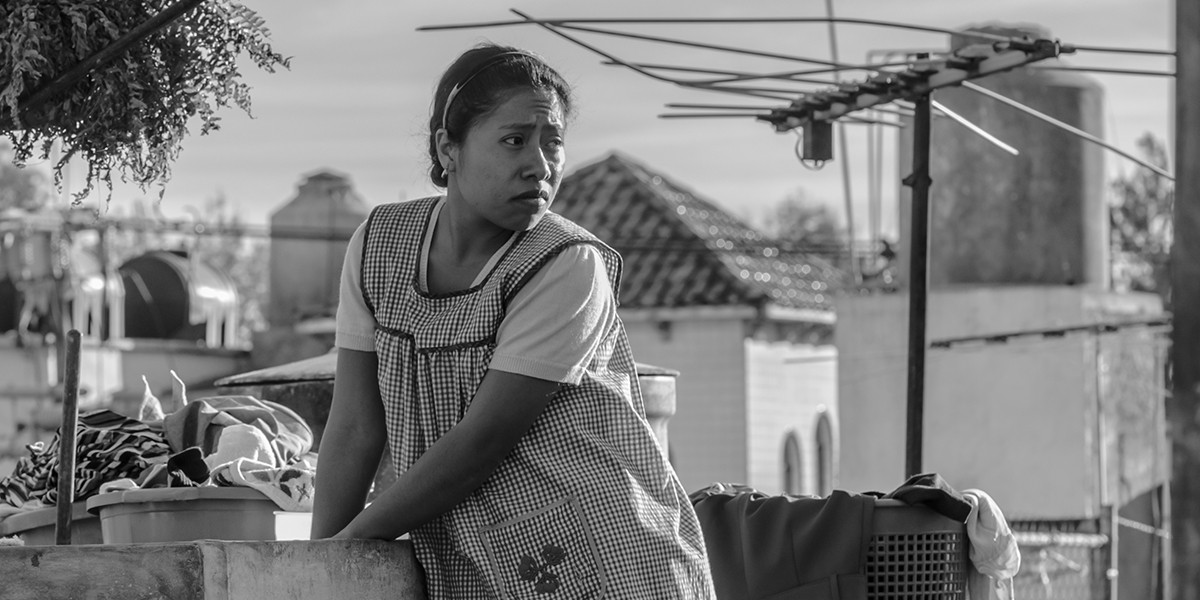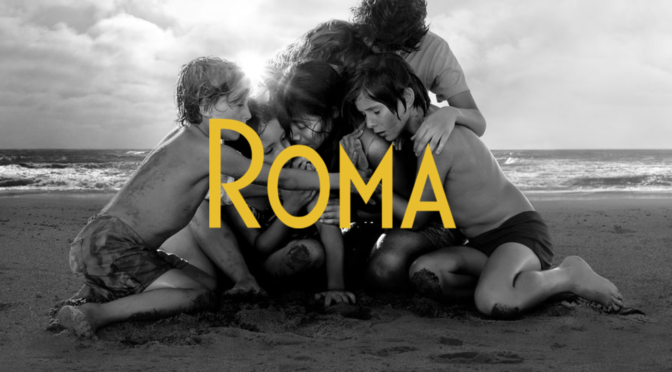In a wealthy suburb of Mexico City in the 70s, Cleo (Yalitza Aparicio), a maid and nanny, attends to the affluent doctor’s family that employs her. She lives in a separate apartment with another staff member and spends her days taking care of the four children, husband, wife, elderly grandmother, and pet dog.
The film is shot entirely in black and white. As the much anticipated release from director Alfonso Cuarón, this marks a stark shift from his previous feature Gravity, a $100 million special effects driven thriller. He works on a much more intimate scale here and uses his images to not only set the time period but also to establish the film as a willfully humble story. Cuarón acted as his own director of photography and the visuals are gorgeous. Black and white films often receive unearned praise for their beauty, but that is not the case with Roma. The digital cinematography has incredible detail and the special attention that has gone into use of shadows, reflections, and depth of field show the work of a master visual stylist.
Cuarón has created his own version of an Italian Neorealist film. He is interested in the everyday life of the subjects in his selected microcosm and never shies away from events that could be called mundane. We see Cleo cleaning floors, doing laundry, and dressing the children. None of these actions propels the plot forward, instead they serve to establish a routine. This is a slice-of-life story and Cuarón embeds the audience in the smallest details of daily patterns. There are a few too many of these scenes, but the film’s greatest success is that most of these banal tasks aren’t boring. The film is on the longer side, but the majority of the additional scenes feel deliberate and necessary to fully comprehend Cleo’s existence.

Through her interactions, we see the subtle, but firm, difference between Cleo and her employers. She may technically live in the same house and spend her days with the family, but she is distinctly not one of them. Although the children clearly have affection for her, often saying “I love you” as she tucks them into bed, and the adults care about her well-being when she is in need, they are quick to order her around and occasionally take out their frustrations on her. We never see Cleo do the same to them. No matter what personal struggle she may be facing, she isn’t afforded the luxury of rudeness because she is at the bottom of this social ladder.
There are a few moments that have a sudden impact. Once Cuarón establishes the regular rhythm of Cleo caring for the family, he introduces conflict that creates emotional reactions. These feelings are amplified by Cleo’s subdued body language. Even in the most climactic scenes, her strongest expression is a quiet sob and the resulting effect is that the viewer absorbs the remaining emotions she is unable to exhibit. This can be an incredibly powerful technique and one that Cuarón has used in the past. Unsaid emotions have a greater impact than any dialogue could deliver, but as successful as this method can be, there are too few emotional moments across the runtime and the ones that are present don’t provide a strong enough payoff. Roma is an incredibly well made film that features flashes of emotion, but not enough to take it to the next level.

3/5 stars.
